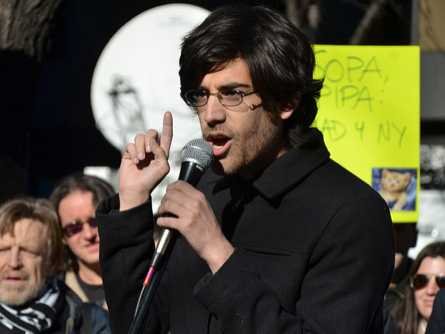
The president of the Massachusetts Institute of Technology (MIT) has asked for an internal investigation into its role in Aaron Swartz’s prosecution.
Web activist and developer Aaron Swartz, who killed himself on Friday, was facing hacking charges in the US.
Aaron Swartz was accused of illegally downloading research documents from academic service JSTOR, using MIT networks.
If found guilty, he could have faced up to 35 years in prison following his trial, scheduled to start next month.
He could also have had to pay a fine of more than $1 million for downloading material from the subscription-only research archive.
Aaron Swartz had intended to plead not guilty to charges of computer fraud and wire fraud.
His family issued a statement stating the actions of both MIT and the Massachusetts US Attorney’s office had contributed to his death.
“Aaron’s death is not simply a personal tragedy. It is the product of a criminal justice system rife with intimidation and prosecutorial overreach,” they said.

When Aaron Swartz was charged, Massachusetts US Attorney Carmen Ortiz had said: “Stealing is stealing whether you use a computer command or a crowbar, and whether you take documents, data or dollars.”
On Monday, MIT president L Rafael Reif praised the “brilliant creativity and idealism” of Aaron Swartz, 26, who had been an early developer of the Reddit community.
“It pains me to think that MIT played any role in a series of events that have ended in tragedy,” he said in a statement to staff.
“Now is a time for everyone involved to reflect on their actions, and that includes all of us at MIT.”
He said he had asked his colleague, Prof. Hal Abelson, to analyze how MIT had behaved when it had first discovered “unusual activity” on its network in 2010, what decisions it had made and what its options had been at the time.
“I want to express very clearly that I and all of us at MIT are extremely saddened by the death of this promising young man who touched the lives of so many,” he said.
Many people have said that the penalties facing Aaron Swartz were unfair.
However, in a blog post, Orin Kerr, a professor of law at the George Washington University Law School, wrote the actions of the prosecutors had been “based on a fair reading of the law”.
“None of the charges involved aggressive readings of the law or any apparent prosecutorial overreach,” he said.
“All of the charges were based on established case law.”
Academics have since taken to Twitter to release their research free in tribute to Aaron Swartz, using the hashtag “PDFtribute”.
[youtube CIcCem_14xE]